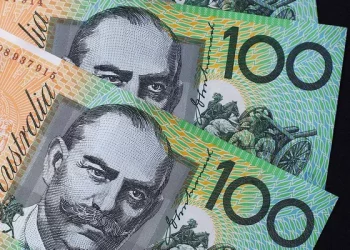The exchange rate between the British Pound (GBP) and the Indian Rupee (INR) is a crucial economic indicator that impacts various aspects of both the United Kingdom and India. Whether you are a traveler planning a trip, a businessperson involved in international trade, or an investor looking for opportunities, understanding what drives this exchange rate is essential. In this article, we will explore the factors influencing the GBP to INR rate, historical trends, and what the future might hold for this currency pair.
When the UK economy is growing strongly, it often attracts foreign investment. A growing economy means more business opportunities, higher corporate profits, and potentially higher returns for investors. As foreign investors pour money into the UK, they need to buy pounds, increasing the demand for the currency. This increased demand can drive up the value of the pound relative to the Indian Rupee. For example, if the UK experiences a boom in its technology sector, with new startups attracting significant investment from around the world, the demand for pounds will rise.
The Basics of the British Pound
Origin and History
The British Pound has a long and storied history. It dates back over a thousand years, with its origins in Anglo – Saxon England. Initially, the pound was a unit of weight for silver, and the currency was closely tied to the precious metal. Over time, as the British Empire expanded, the pound became a dominant international currency. It was the standard currency for global trade and finance in the 19th and early 20th centuries. Even after the decline of the empire, the pound has retained its significance in the global financial markets.
Role in the UK Economy
In the United Kingdom, the pound is the official currency used for all domestic transactions. It plays a vital role in the country’s economic stability. The Bank of England, the UK’s central bank, is responsible for issuing and regulating the currency. The value of the pound affects the cost of living in the UK. A strong pound can make imports cheaper, which can help keep inflation in check. However, it can also make British exports more expensive, potentially hurting the competitiveness of UK businesses in international markets.
Currency Issuance and Regulation
The Bank of England controls the supply of pounds in the economy. It does this through various monetary policy tools, such as setting interest rates and conducting open – market operations. When the Bank of England wants to stimulate the economy, it may lower interest rates, which can lead to an increase in the money supply. This, in turn, can put downward pressure on the value of the pound. Conversely, raising interest rates can attract foreign investment, increasing the demand for the pound and potentially strengthening its value.
The Basics of the Indian Rupee
Historical Development
The Indian Rupee also has a rich history. It has been in use for centuries, with its roots in ancient India. Over time, the rupee has undergone various changes, including different standardizations and decimalizations. After India gained independence in 1947, the Reserve Bank of India was established as the country’s central bank, and it took over the management and issuance of the rupee.
Significance in the Indian Economy
In India, the rupee is the lifeblood of the economy. It is used for all domestic economic activities, from small – scale street vendors to large – scale corporate transactions. The value of the rupee has a significant impact on the country’s economic growth. A weak rupee can make Indian exports more competitive in international markets, as foreign buyers can get more goods for their money. However, it can also increase the cost of imports, which can lead to inflation, especially for essential items like oil.
Monetary Policy and the Rupee
The Reserve Bank of India (RBI) is responsible for formulating and implementing monetary policy to manage the value of the rupee. The RBI uses tools such as interest rate adjustments, reserve requirements for banks, and intervention in the foreign exchange market. If the RBI wants to stabilize the rupee, it may intervene by buying or selling foreign currencies in the market. For example, if the rupee is depreciating rapidly, the RBI may sell some of its foreign currency reserves (such as dollars) and buy rupees, which can increase the demand for the rupee and support its value.
Interest Rates
Bank of England’s Interest Rates
The Bank of England’s interest rate decisions have a direct impact on the value of the pound. Higher interest rates in the UK make it more attractive for foreign investors to deposit their money in British banks. This is because they can earn a higher return on their deposits. To invest in the UK, these investors need to buy pounds, increasing the demand for the currency. For instance, if the Bank of England raises its base interest rate from 1% to 1.5%, foreign investors may be more inclined to invest in UK – based financial instruments, driving up the value of the pound.
Reserve Bank of India’s Interest Rates
Similarly, the Reserve Bank of India’s interest rate policies affect the value of the rupee. When the RBI raises interest rates, it can make the rupee more appealing to investors. Higher interest rates in India can lead to increased inflows of foreign capital, as investors seek higher returns. This increased demand for the rupee can strengthen it relative to the pound.
Interest Rates
Bank of England’s Interest Rates
The Bank of England’s interest rate decisions have a direct impact on the value of the pound. Higher interest rates in the UK make it more attractive for foreign investors to deposit their money in British banks. This is because they can earn a higher return on their deposits. To invest in the UK, these investors need to buy pounds, increasing the demand for the currency. For instance, if the Bank of England raises its base interest rate from 1% to 1.5%, foreign investors may be more inclined to invest in UK – based financial instruments, driving up the value of the pound.
Reserve Bank of India’s Interest Rates
Similarly, the Reserve Bank of India’s interest rate policies affect the value of the rupee. When the RBI raises interest rates, it can make the rupee more appealing to investors. Higher interest rates in India can lead to increased inflows of foreign capital, as investors seek higher returns. This increased demand for the rupee can strengthen it relative to the pound.
Conclusion
The exchange rate between the British Pound and the Indian Rupee is a complex and dynamic phenomenon. It is influenced by a wide range of factors, including economic growth, interest rates, inflation, political stability, and trade balances in both the UK and India. Historical trends have shown that the exchange rate can be both volatile in the short term and subject to long – term changes. Different stakeholders, such as travelers, businesses, and investors, are all affected by these exchange rate fluctuations. Looking to the future, potential economic developments, policy changes, and global economic and geopolitical factors will continue to shape the GBP – INR exchange rate. Understanding these factors is essential for anyone involved in cross – border activities between the United Kingdom and India. Whether you are planning a trip, running a business, or making investment decisions, keeping an eye on the GBP – INR exchange rate and the factors driving it can help you make more informed choices.
Related topics

























